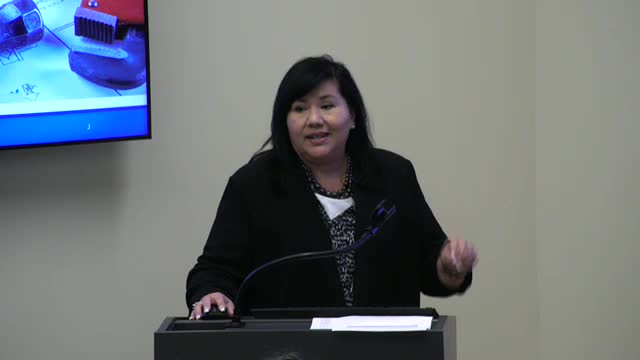Denton staff outline limited repair dollars for homeowners, pilot rental-repair program
Get AI-powered insights, summaries, and transcripts
Subscribe
Summary
Luisa Garcia, a Community Development staff member, told the Historic Landmark Commission that Denton's minor home repair program provides one-time grants of up to $24,500 per household and is supported this year by about $468,006.47 in HUD Community Development Block Grant funds.
Luisa Garcia, a Community Development staff member, told the Historic Landmark Commission that Denton's long-running minor home repair program offers a one-time grant of up to $24,500 per eligible household to cover critical work such as electrical, plumbing, roof and HVAC repairs. "We're receiving $468,006.47 in federal funding from the US Department of HUD," Garcia said, describing the current Community Development Block Grant allocation for the program year.
Garcia said the program has operated since 1986 and has helped more than 800 households; about 43 percent of recipients have been elderly households "that we assisted in aging in place." She described basic eligibility: applicants must own and occupy the property as their principal residence, the property must be inside Denton city limits, and household income must meet HUD area median income guidelines (staff cited an example family threshold of about $93,008.50).
The program is intended for limited-scope repairs rather than full home renovations. "Because it's only $24,500, that doesn't take us very far," Garcia said, and she estimated the average award amount at roughly $13,000. She told commissioners the program often runs out of funds in peak seasons and that staff keeps a waiting list (she said about 51 households were on the minor-repair waiting list at the time of the meeting).
Garcia also outlined the rental repair pilot launched in 2024. Funded from the city's general fund at about $100,000 per year, the pilot provides a five-year forgivable loan per unit in exchange for landlords renting to income-eligible tenants at HUD fair-market rents. The applicant must hold fee-simple title and the program is limited to 1- to 4-unit buildings located inside Denton; rental properties must be at least 10 years old. "It's a 5 year forgivable loan per unit," Garcia said, adding that borrowers sign a deed of trust and promissory note and that unpaid amounts can become due immediately if terms are not met.
Commissioners asked how historic-review requirements intersect with the repair programs. Garcia explained that properties 45 years or older trigger coordination with the Texas Historical Commission and local historic staff: exterior work may require a Section 106-style review and sometimes negotiation about compatible repair treatments. Garcia said that, in practice, most minor repairs affect interiors or roof-life-safety items and rarely cause the state to block work.
Next steps: staff said they will research whether historic-review approval opens additional state funding opportunities and will continue processing the waiting list and applications. The commission did not take a formal vote on changes to the repair programs during this meeting.
